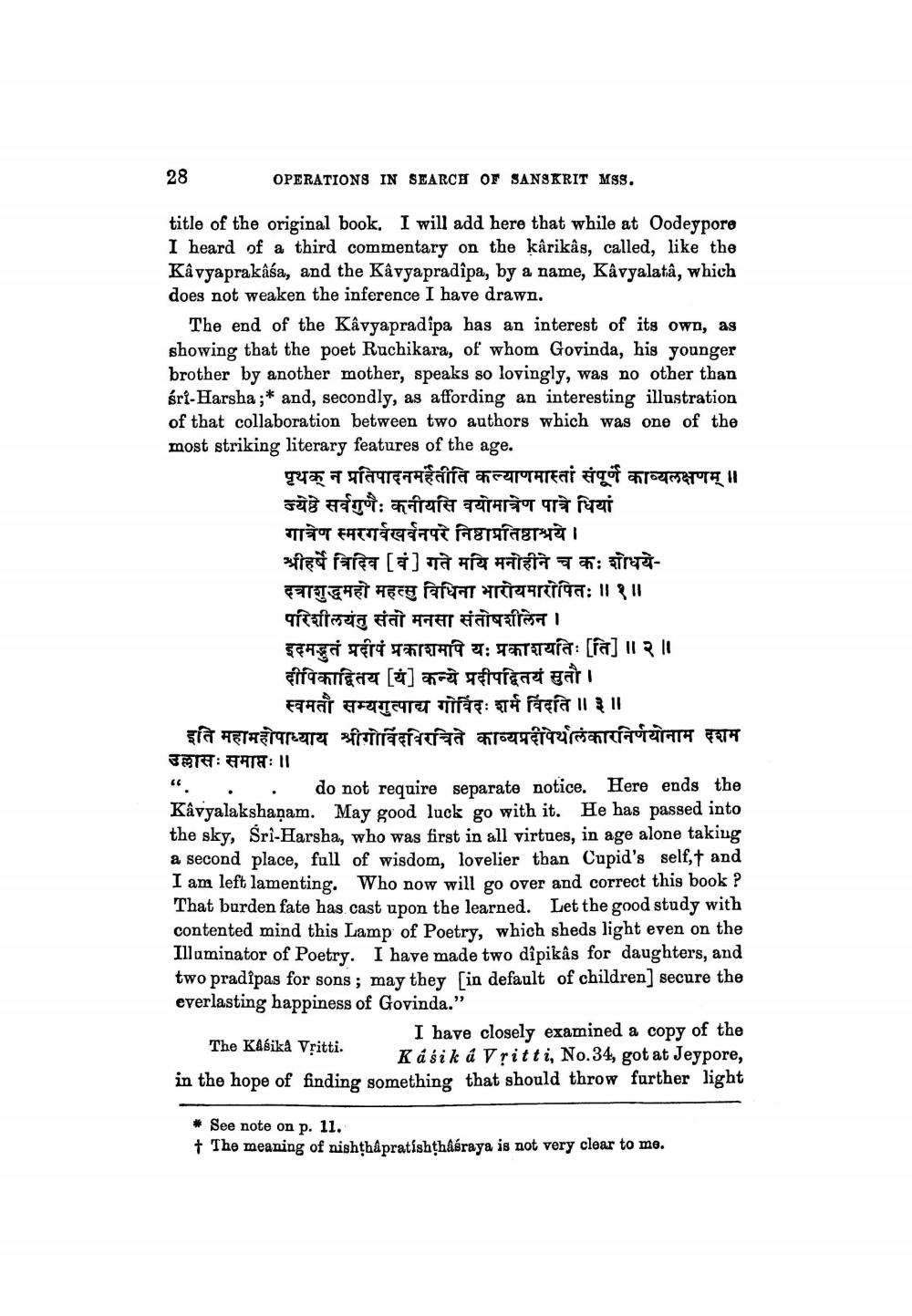________________
28
OPERATIONS IN SEARCH OF SANSKRIT MSS.
title of the original book. I will add here that while at Oodeypore I heard of a third commentary on the kârikâs, called, like the Kavyaprakasa, and the Kavyapradipa, by a name, Kavyalata, which does not weaken the inference I have drawn.
The end of the Kavyapradipa has an interest of its own, as showing that the poet Ruchikara, of whom Govinda, his younger brother by another mother, speaks so lovingly, was no other than śri-Harsha ;* and, secondly, as affording an interesting illustration of that collaboration between two authors which was one of the most striking literary features of the age.
पृथक् न प्रतिपादनमर्हतीति कल्याणमास्तां संपूर्ण काव्यलक्षणम् ।। ज्येष्ठे सर्वगुणैः कनीयसि वयोमात्रेण पात्रे धियां गात्रेण स्मरगर्वखर्वनपरे निष्ठाप्रतिष्ठाश्रये।। श्रीहर्षे त्रिदिव [वं] गते मयि मनोहीने च कः शोधयेदत्राशुद्धमहो महत्सु विधिना भारोयमारोपितः ॥१॥ परिशीलयंतु संतो मनसा संतोषशीलेन । इदमद्भतं प्रदीपं प्रकाशमपि यः प्रकाशयतिः [ति] ।।२।। दीपिकाद्वितय [यं कन्ये प्रदीपद्वितयं सुतौ।
स्वमतौ सम्यगुत्पाद्य गोविंदः शर्म विंदति ॥३॥ इति महामहोपाध्याय श्रीगोविंदविरचिते काव्यप्रदीपेर्थालंकारनिर्णयोनाम दशम उल्लासः समाप्तः॥ ". . . do not require separate notice. Here ends the Kâvyalakshaņam. May good luck go with it. He has passed into the sky, Sri-Harsha, who was first in all virtues, in age alone taking a second place, full of wisdom, lovelier than Cupid's self,t and I am left lamenting. Who now will go over and correct this book ? That burden fate has cast upon the learned. Let the good study with contented mind this Lamp of Poetry, which sheds light even on the Illuminator of Poetry. I have made two dîpikâs for daughters, and two pradipas for sons; may they fin default of children] secure the everlasting happiness of Govinda."
I have closely examined a copy of the The Kašika Vșitti.
Kášik á Vệitti, No.34, got at Jeypore, in the hope of finding something that should throw further light
*See note on p.11. + The meaning of nishthapratishthasraya is not very clear to me.




